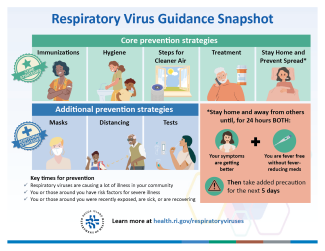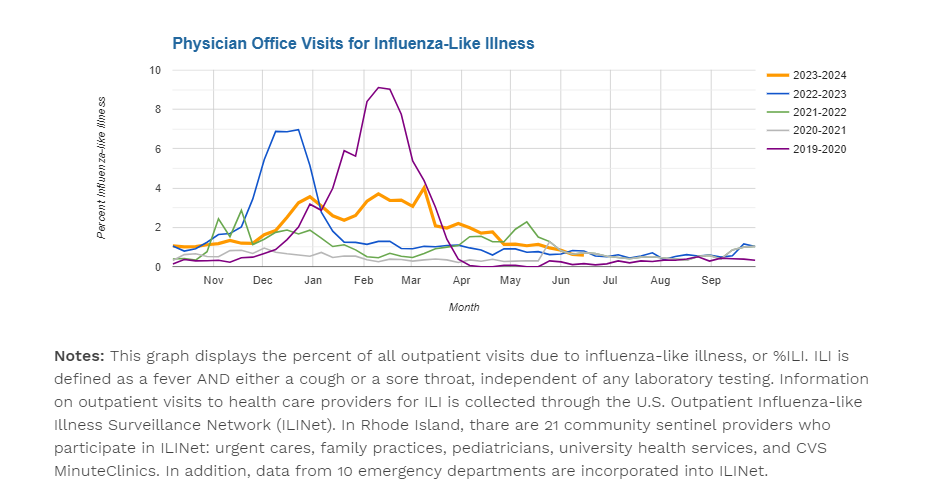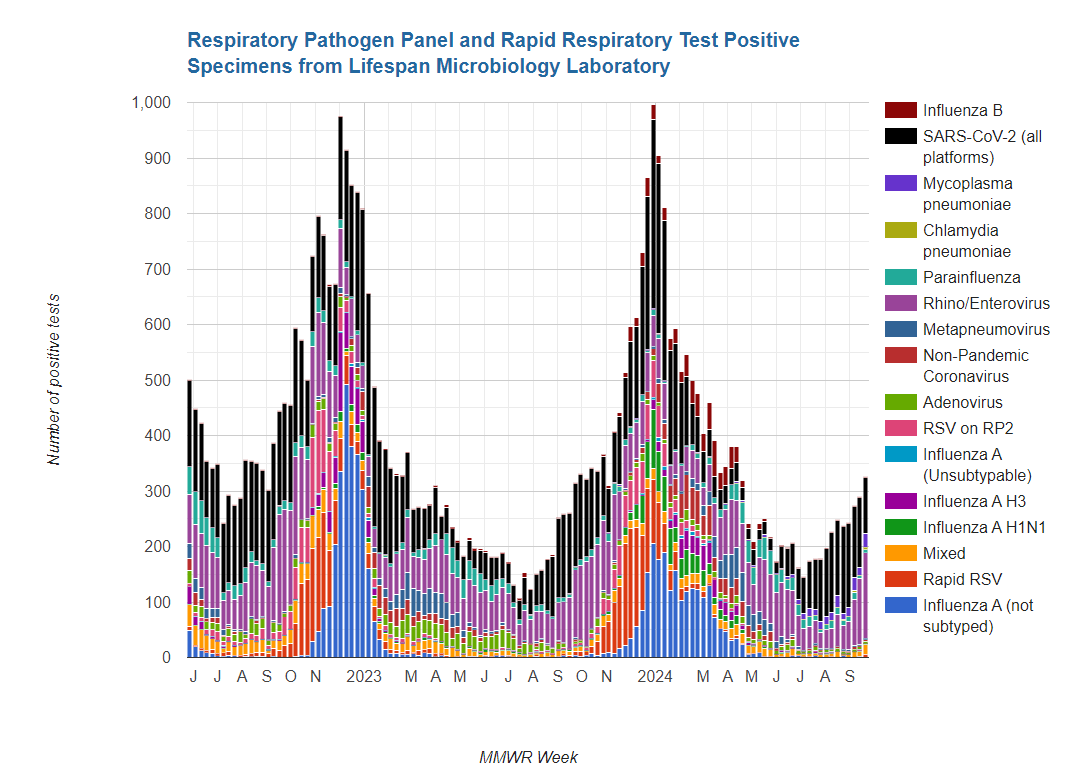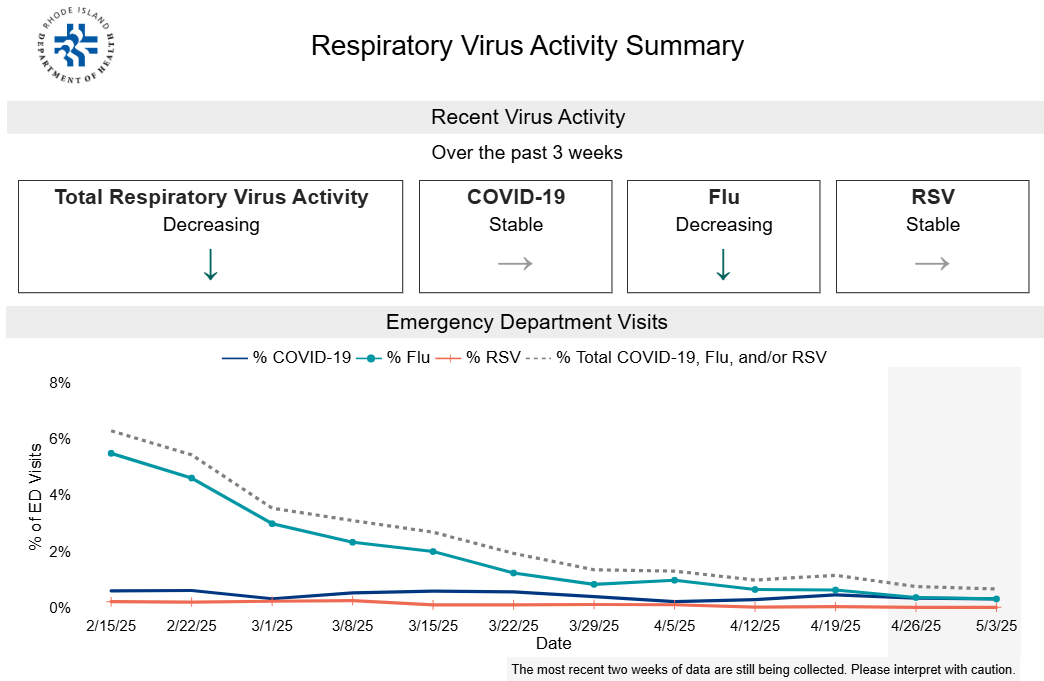Protect yourself from COVID-19, Flu, and RSV
It’s common to get sick from respiratory viruses such as COVID-19, flu, and respiratory syncytial virus (RSV), especially in the fall and winter. Each year, respiratory viruses are responsible for millions of illnesses and thousands of hospitalizations and deaths in the United States.
- Current Rhode Island Respiratory Virus Data trends
- Respiratory Guidance Snapshot Graphic (English)
- Respiratory Guidance Snapshot Graphic (Spanish)

Core Prevention Strategies
The Centers for Disease Control and Prevention (CDC) recommends that all people use core prevention strategies to protect yourself and others from respiratory virus illnesses.
- Stay up to date with your vaccines:
- Get your flu shot. Everyone age 6 months or older should be vaccinated every year.
- Stay up to date on your COVID-19 vaccinations.
- Learn about RSV immunizations for at-risk populations.
- Find out which fall and winter vaccines are right for you.
- Practice good hygiene by covering your coughs and sneezes, washing or sanitizing your hands often, and cleaning frequently touched surfaces.
- Take steps for cleaner air to increase ventilation and circulation
- When you may have a respiratory virus:
- Use precautions to prevent spread. Stay home and away from others until your symptoms are getting better for 24 hours and you’re fever free without fever-reducing meds for 24 hours. Then take added precautions for the next 5 days.
- Seek health care right away for testing and/or treatment if you have risk factors for severe illness. Treatment for flu or COVID-19 may help lower your risk of severe illness.
Additional Prevention Strategies
You can choose from these additional prevention strategies to further protect yourself and others:
Key Times for Prevention
All these prevention strategies can help reduce your risk of getting sick. They are especially helpful when:
- Respiratory viruses are causing a lot of illness in your community. Check out current Rhode Island Respiratory Virus Data trends.
- You or the people around you were recently exposed to a respiratory virus, are sick, or are recovering.
- You or the people around you have risk factors for severe illness.
- You may not be aware of the things that can make others more vulnerable to serious illness. Using the core prevention strategies will provide some protection no matter what. If you are unsure about the health condition or risk status of those around you, the most protective option is choosing to use additional prevention strategies, like masking, physical distancing, and testing.
Where to get care
It’s common to get sick from respiratory viruses such as COVID-19, flu, and respiratory syncytial virus (RSV), especially in the fall and winter. Each year, respiratory viruses are responsible for millions of illnesses and thousands of hospitalizations and deaths in the United States. Check out current Rhode Island Respiratory Virus Data trends.
Hospital emergency departments in Rhode Island are currently very crowded. Children and adults in emergency departments with less serious health issues are experiencing long wait times. If you or your child does not need emergency medical care, please do not go to the emergency department. Long waits in the emergency department are frustrating, and they expose you and your family to new sicknesses.
Many respiratory viruses can be treated more quicky and effectively by a primary care doctor or in an urgent care facility than in an emergency department.
Contact your primary care provider or pediatrician if you believe you or your child need medical care. Your provider can offer advice on whether an in-person evaluation is needed and the best location (doctor's office, urgent care, emergency room) for care.
RIDOH has lists of primary care providers, urgent care facilities, and health centers online.
For more information on non-emergency treatment options and when to seek emergency medical care, visit Right Place, Right Care.



